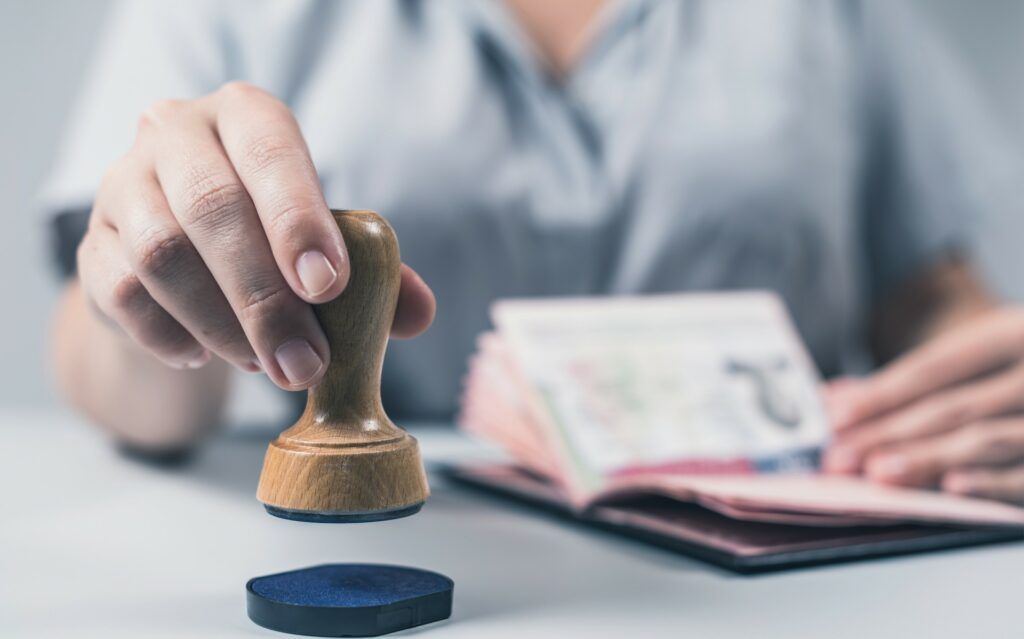All individuals arriving at U.S. ports-of-entry will be inspected by an Immigration Officer. Such officers are required to question all arriving individuals to determine their admissibility to the United States. Inspection procedures can be lengthy and frustrating but are unavoidable.
The following tips may prove helpful during inspections at U.S ports-of-entry:
— Individuals must possess all required documents and must be able to articulate the purpose of their trip. When questioned, provide truthful, detailed, concise information that addresses only the question posed. Avoid volunteering additional information.
— Never attempt to answer a question that you do not understand. Instead, ask the immigration officer to repeat or rephrase the question. If questioned about the length of intended stay in the U.S., provide the exact amount of time you anticipate remaining in the country during this current trip.
— Foreign Nationals (FNs) entering the U.S. must present a valid, unexpired passport at the time of entry. The passport presented must be valid for the intended period of stay or it will otherwise result in a limited duration of admission through the passport expiration date. Unless the individual is a citizen of one of the countries in the “Six Month Club,” they must be in possession of a passport that is valid for six months beyond the period of intended stay in the U.S.
— FNs entering the U.S. must also be prepared to present proof of acceptable COVID-19 vaccination in accordance with CDC requirements.
— An FN temporarily assigned to work at a U.S. entity must present a valid passport and a valid, unexpired employment-based nonimmigrant visa obtained at a U.S. consulate abroad, in addition to the underlying petition approval notice if applicable (i.e., I-797 Approval Notice or endorsed I-129S).
— An FN coming to the U.S. as a Business Visitor must present a passport valid for the intended period of stay; a valid, unexpired Visitor Visa obtained at a U.S. consulate abroad (unless applying pursuant to the Visa Waiver Program), and proof that their activities in the U.S. fall within the Business Visitor criteria. A letter from a foreign employer or U.S. host describing the purpose of the trip, the itinerary and the financial arrangements is strongly recommended. If the officer concludes or suspects that the Business Visitor intends to work in the U.S., they could be refused admission and barred from returning to the country for a significant period of time.
— If entering the U.S. as a business visitor, individuals may not work (provide any type of service that would benefit the U.S. company) or train U.S. employees. Again, any statement that asserts or implies intention to work or provide training while in the U.S. will likely result in further questioning and a possible denial of entry.
— Appropriate activities for Business Visitors include attending meetings, observing operations, negotiating contracts on behalf of a foreign employer and/or attending conferences. Any statement that implies the Business Visitor will provide services that will benefit the U.S. entity, or that will result in profits for the U.S. entity, will be considered as work in the U.S.
— Many immigration officers at ports-of-entry are not extensively trained and may be unfamiliar with the terms of particular visas. If individuals encounter an issue or problem, they should attempt to speak with the supervisor on duty. If the issue or problem is not resolved at the supervisory level, they should contact experienced immigration counsel, if possible, and provide any applicable information about the situation (the location of the incident, the name or badge number of the officer, the specific issue raised, etc.). Note that the use of cell phones is typically restricted, so individuals may be unable to call from the inspections area.

